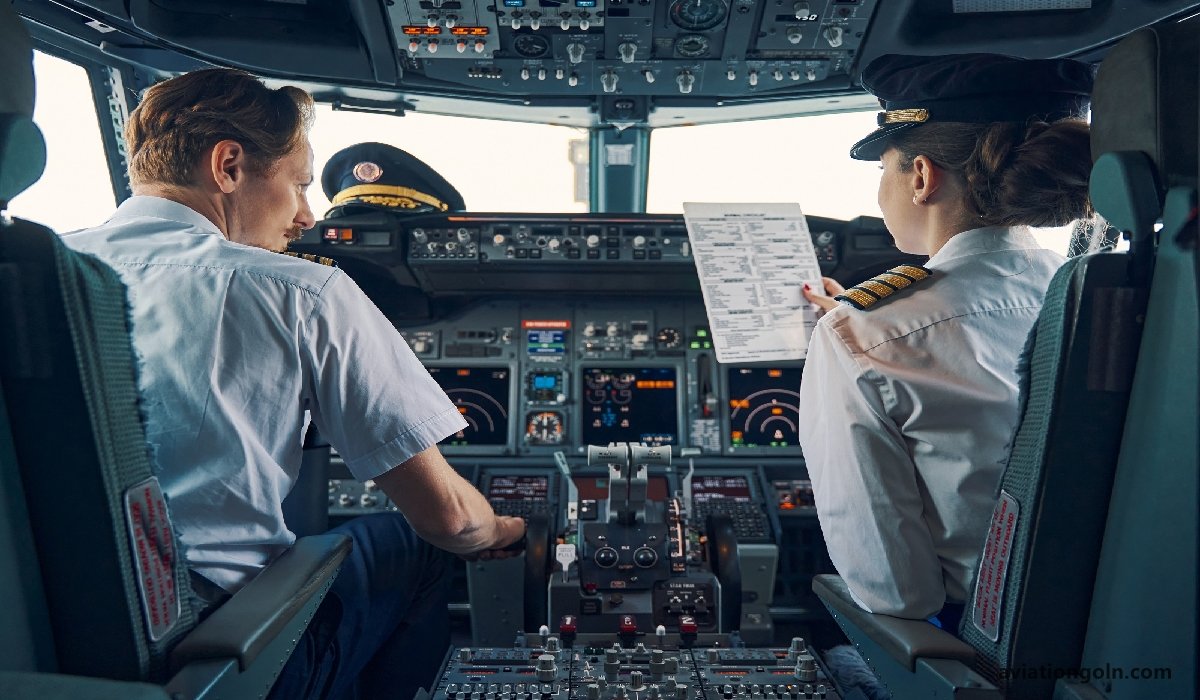Interviews with Aviation Professionals: Aviation, one of the world’s most dynamic industries, has witnessed countless evolutions and revolutions over the years. But while the machines and technologies change, it’s the people behind them that continue to make aviation an awe-inspiring field. To understand the diverse range of challenges and experiences in this industry, we delve into interviews with various aviation professionals, each offering a unique insight into their roles, challenges, and aspirations. These case studies provide a snapshot into the life and work of individuals who keep our skies safe, efficient, and accessible.
Interviews with Aviation Professionals: Case Studies

1. Interview with an Air Traffic Controller
Name: Maria Rodriguez Location: Los Angeles International Airport, USA
Question: Describe your daily role and responsibilities.
Maria: As an air traffic controller, my primary responsibility is ensuring safe and orderly flow of air traffic. On a day-to-day basis, I handle aircraft arriving, departing, or flying through our airspace, providing them with timely instructions and information.
Question: What’s the most challenging part of your job?
Maria: Managing heavy traffic during peak hours while also handling unexpected events like unscheduled aircraft movements or weather changes. It’s a test of concentration, multitasking, and rapid decision-making.
Question: What do you love most about your job?
Maria: The adrenaline and the satisfaction that comes from ensuring safe skies. It’s a huge responsibility, but also immensely rewarding.

2. Interview with an Airline Pilot
Name: Rajeev Malhotra Location: Based in Singapore, flies globally for Singapore Airlines
Question: How do you prepare for a flight?
Rajeev: Preparation starts days in advance. We review flight plans, weather conditions, aircraft maintenance logs, and other pertinent data. Before the flight, there’s also a crew briefing to ensure everyone is on the same page.
Question: Any memorable experience you’d like to share?

Rajeev: Flying over the Northern Lights during a flight to Europe. It was a surreal experience; moments like these make me fall in love with flying all over again.
Question: How do you handle the stress of being responsible for passengers and crew?
Rajeev: Rigorous training, discipline, and trust in my co-pilots and crew. Also, continuous learning and skill upgrading help keep the confidence levels high.

3. Interview with an Aircraft Maintenance Engineer
Name: Aisha Nkrumah Location: Kotoka International Airport, Ghana
Question: How crucial is your role in the aviation industry?
Aisha: Our role is pivotal. We ensure aircraft are airworthy. Without regular maintenance and checks, aircraft safety could be compromised.
Question: Share an experience where you identified and resolved a critical issue.
Aisha: We once detected a minor hydraulic leak during a routine check. It seemed insignificant but could have caused serious issues mid-air. Our team rectified it promptly, ensuring the aircraft’s safety.
Question: How do you keep up with rapidly changing aviation technology?
Aisha: Continuous training. The aviation industry is ever-evolving, and regular workshops, courses, and certifications are crucial to stay updated.

4. Interview with a Flight Attendant
Name: Li Wei Location: Based in Beijing, China, works for Air China
Question: Describe your role on an average flight.
Li Wei: As a flight attendant, my role extends beyond serving meals. It includes ensuring passengers’ safety, comfort, handling emergencies, and sometimes even mediating in disputes.
Question: What’s the most rewarding aspect of your job?
Li Wei: Meeting people from different cultures and backgrounds. And the gratitude when you can make someone’s journey comfortable and pleasant.
Question: How do you cope with irregular hours and jet lag?
Li Wei: It’s challenging. I maintain a strict diet, exercise regularly, and try to set a sleep pattern, especially before long-haul flights.

5. Interview with an Airport Operations Manager
Name: Ahmed Al-Khalifa Location: Hamad International Airport, Qatar
Question: Describe your responsibilities as an airport operations manager.
Ahmed: It’s a vast role. I oversee the day-to-day operations, ensuring smooth passenger flow, coordinating with different departments like security, baggage, and ground handling, and addressing any operational challenges.
Question: Share a crisis situation and how you managed it.
Ahmed: We once had a major system outage, affecting check-ins and baggage handling. We immediately activated our manual backup systems, coordinated with airlines, and kept passengers informed, ensuring minimal disruption.
Question: How do you ensure the efficiency of operations with such a vast team?
Ahmed: Regular training, clear communication, and fostering a sense of shared responsibility. Everyone should realize they’re a cog in a larger machine, and their efficiency impacts the entire operation.

Through these interviews, it becomes evident that the aviation industry is a complex web of professionals, each playing a distinct role. Their dedication, expertise, and passion ensure that millions travel safely across the skies daily. While the challenges each professional faces are unique, their combined efforts make the miracle of flight a daily reality. Whether it’s the meticulous eye of the engineer, the alertness of the air traffic controller, the skill of the pilot, the diligence of the flight attendant, or the strategic acumen of the operations manager, every role contributes to the symphony that is global aviation.
